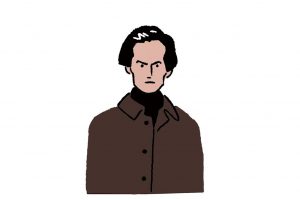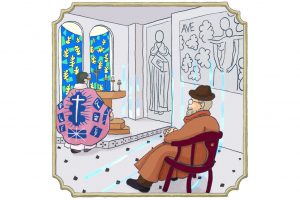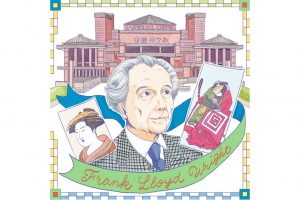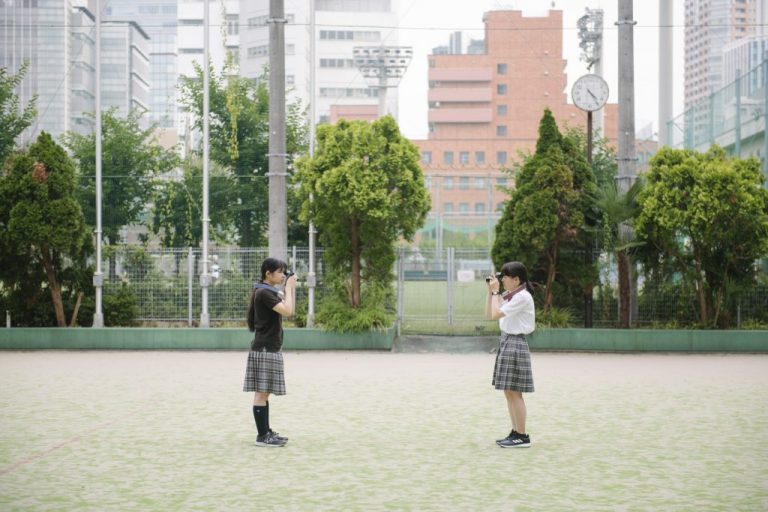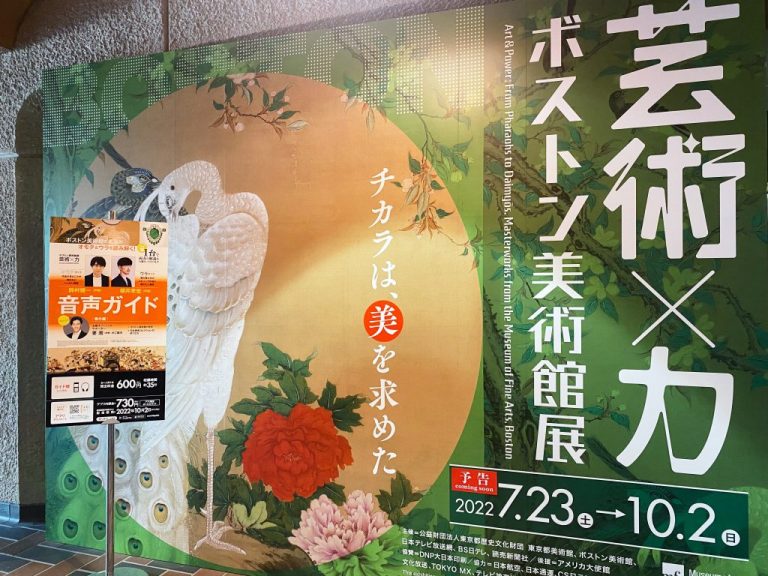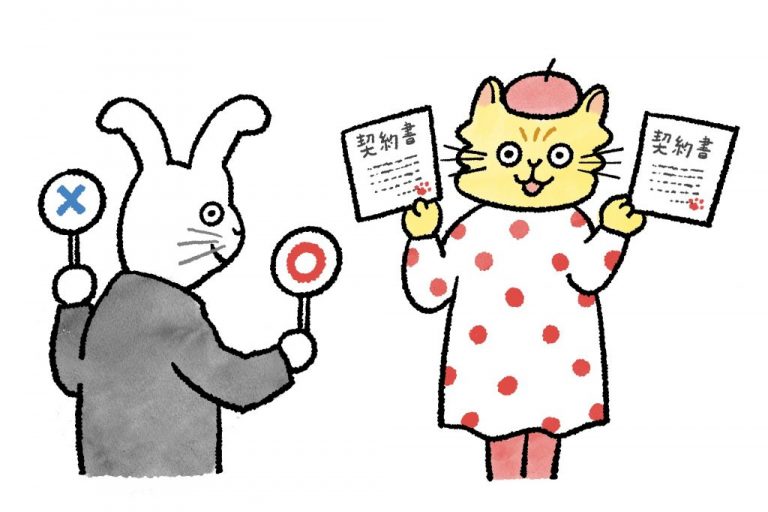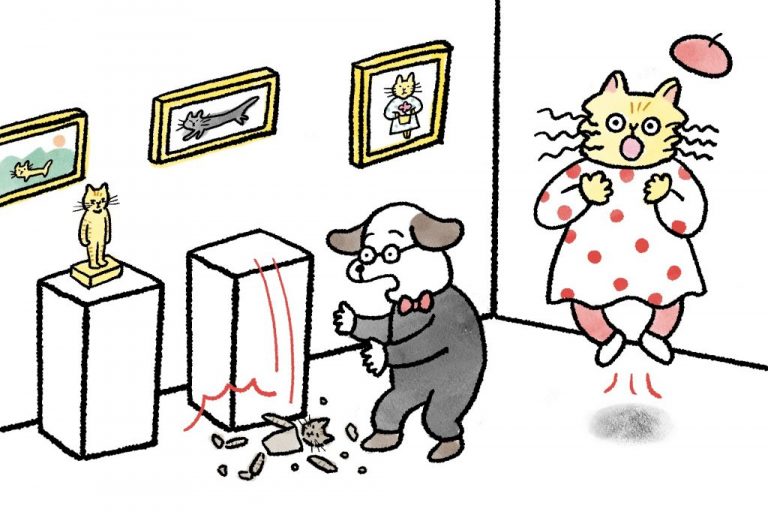Almost Entirely Self-Taught
It was at the age of nine, when he was awed by the figure of Carl Maria von Weber conducting the orchestra for The Marksman (1821), that Wagner first wanted to become a composer. He found himself, however, unsuited to university classes and, after dropping out of school, studied composition theory under musicians from the local Leipzig Gewandhaus Orchestra (the world’s first private orchestra) and the cantor (organist and choir leader) at St. Thomas Church. Out in the real world, Wagner learned contemporary opera transcription, music arrangement, and other techniques needed for composing music.
Richard Wagner
Examining artists
No.023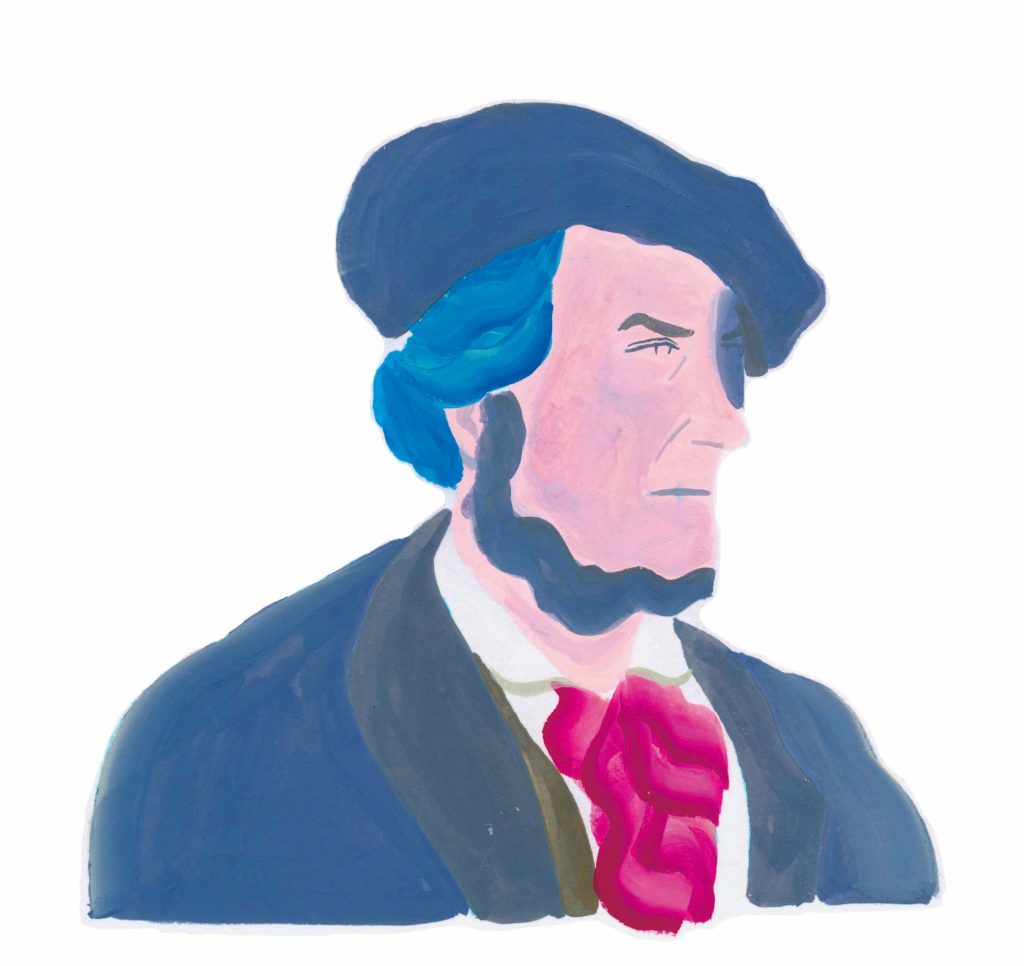
A leading German composer of operas in the 19th century, Richard Wagner sought to elevate the drama in opera over the music, in contrast to Italian operas, which highlight the skills of the female opera singer. Toward this end, Wagner composed theatrical works and constructed his own theater to stage his dramas. Here we present a few episodes that reveal Wagner’s passion for music and drama, earning him a loyal base of enthusiastic fans in his own day and to the present.
Illustration: Sora Toyoshima
Richard Wagner (1813-1883)
Born in 1813 in Leipzig, Germany. Wagner favored “music drama,” a style of opera that uses music to help tell a story rather than spotlighting the artistry of the opera singer. His best known works include Tristan und Isolde (1865), The Master–Singers of Nuremberg (1868), and The Ring of the Nibelung (first performed with all songs in 1876), which took the composer 26 years to complete.
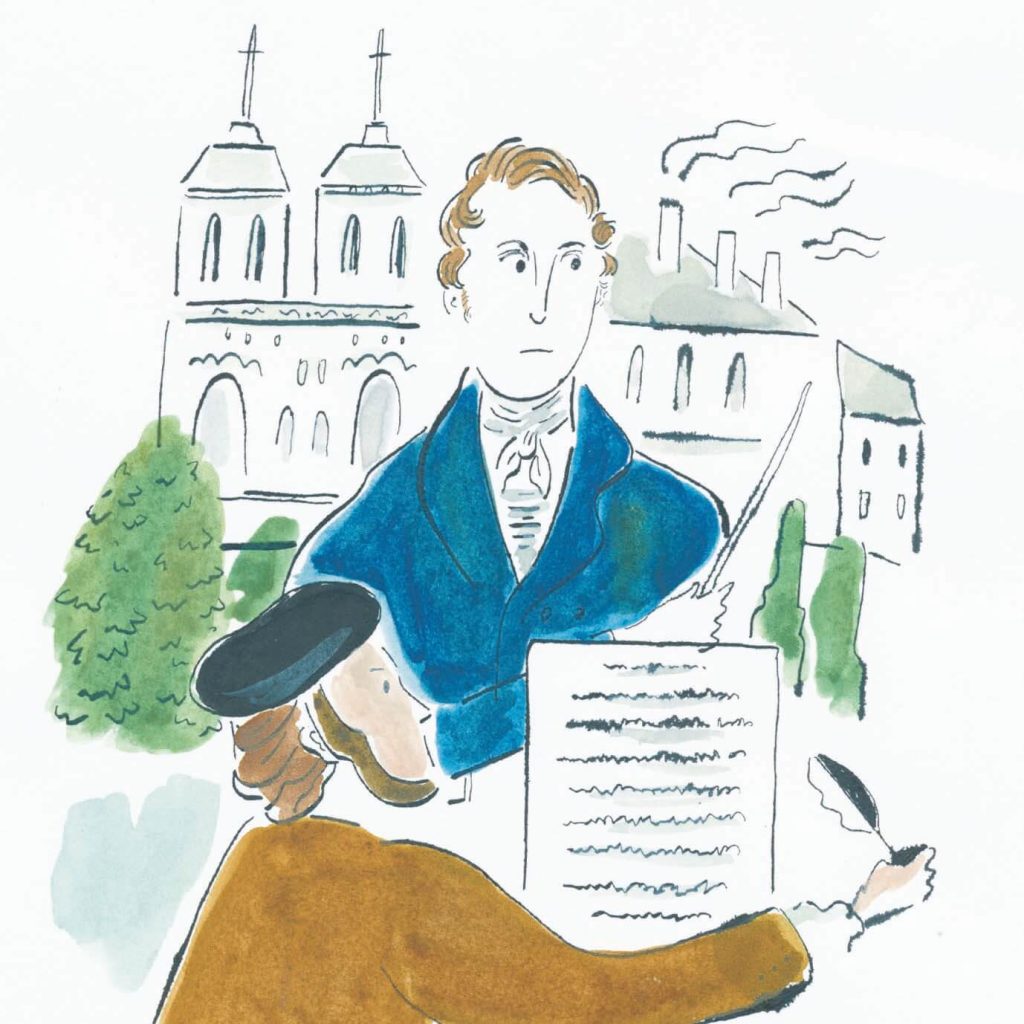
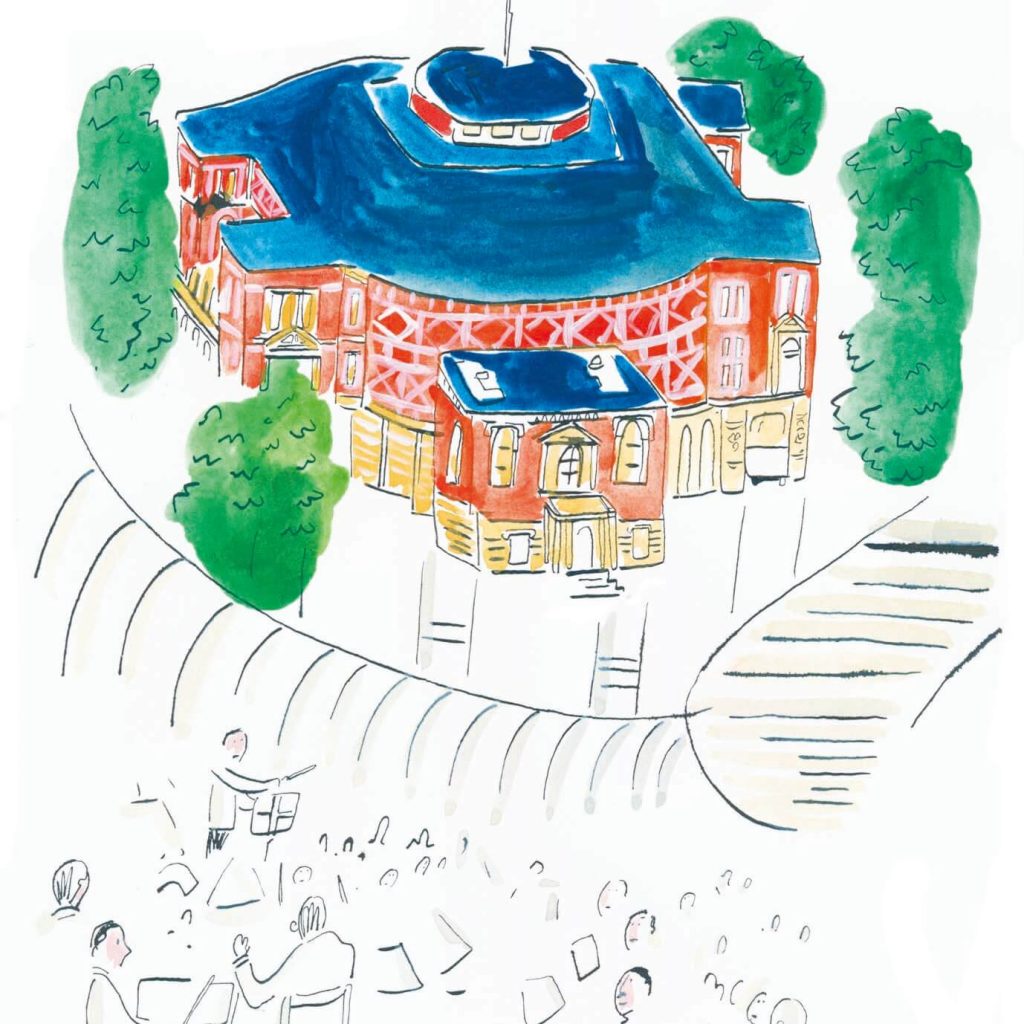
A Perfect Stage of His Own
In 1864, King Ludwig II of Bavaria became Wagner’s patron. However, without the composer’s approval, the king previewed the prelude and the first act of The Ring of the Nibelung—Das Rheingold and Die Walkϋre respectively—on their own before the other acts were finished. It was this incident that prompted Wagner to have his own theater constructed, and in 1876, the Bayreuth Festival Theatre was completed. The Beyreuth Festival is still held at this theater in late July and August each year, when Wagnerians (as fans of Wagner are known) from around the world make the pilgrimage to Beyreuth.
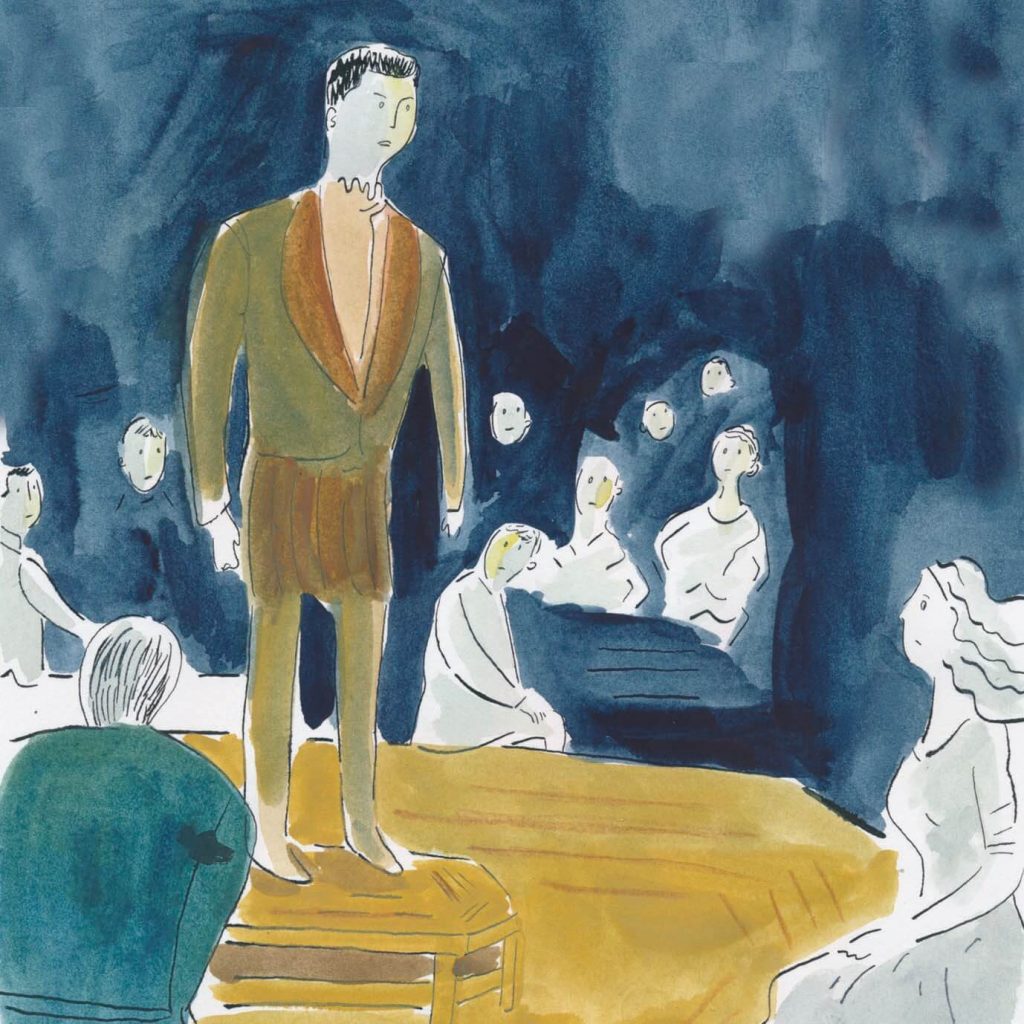
Experiencing Wagner’s Vision of “Music Drama”
Wagner’s The Master-Singers of Nuremberg, one of his masterpieces, is a comedy that tells the story of Walter, a knight who aims to win a song contest so that he may marry his love Eva. In contrast to the songs sung by the mastersingers that follow a set of strict rules, Walter performs a bold and unconventional song. Wagner projects himself through the character of Walter as he advocates his vision of a new style of opera as music drama. This comedy is a good starting place for the Wagner beginner to glimpse the composer’s aspirations for his art.
Cooperation: Hideaki Mogami (Professor, Center for Educational Development and Support, Kagawa University)
Japanese original text: Yasuna Asano
Sora Toyoshima
Illustrator. Born 1980 in Ibaraki Prefecture. Graduated from PALETTE CLUB SCHOOL.
Works with both Japanese and overseas clients, mainly in areas of magazine, advertisement, websites, and apparels.
http://soratoyoshima.net


